Angela: Stu, Guy and I were brainstorming the next topic of our blog post and we got onto the topic of butter vs. margarine. There was an article in the Courier Mail recently confirming that butter sales have increased and margarine sales have dropped. The reason being that people are looking for the more natural option. Yay!
There are a lot of things written on why you shouldn’t eat margarine, like “it’s one molecule away from plastic” which is a meaningless comparison and an urban myth. I want to share the simple facts why butter is better.
So before we start, two things butter and margarine have in common: they are very close in calories and butter is slightly higher in saturated fat.
So here it is… Why butter is BEST:
Butter (Natural)
- All natural – to make butter you churn fresh or fermented cream or milk. Simple story…
- Naturally contains the fat-soluble vitamins A, D, E and K and the minerals magnesium, calcium, potassium, phosphorus and selenium all needed for good health. There is also the vitamin K2 found in higher amounts in grass-fed butter which contributes to bone, cardiovascular, skin, brain and prostate health
- Contains Omega 3, an essential fatty acid – essential, as the body doesn’t make it, you have to obtain it from your diet. One of the most important benefits of Omega 3 is its anti-inflammatory properties. Many disease states are related to excess inflammation in the body
- Most of the saturated fats are short chain fatty acids, which are used as energy in the body NOT stored as fat. CLA and butyric acid are both short chain fatty acids found in butter and both inhibitors of some forms of cancer
- Contains natural trans fats – not harmful to the body
- Tastes good! – awesome
Margarine (Synthetic)
Not natural – made from refined vegetable oils (high in Omega 6 which cause inflammation in the body), which are neutralised, bleached, filtered and deodorised and turned into a spreadable forms by a chemical process called hydrogenation as they are not naturally solid at room temperature. The oil is heated to a high temperature, nickel oxide is used to force the change in molecular structure, strong pressure is applied and hydrogen is added into the structure to make it solid at room temperature. Not so simple…
- Fortified with synthetic vitamins and minerals as they don’t come naturally!
- Artificial flavours and colours are added to make it resemble butter
- Under speculation is the instability of the vegetable oils used as they can react with oxygen in the body and cause free radical damage
- Contains synthetic trans fats which are bad for health
- Doesn’t taste like real food – not so good
At the supermarket…
Amazing! They are now calling margarine ‘Butterly’ and wrapping them like blocks of butter, & the so-called olive oil spreads are 20% olive oil & the rest is a mix of vegetable oils.
Butter ingredients should be cream, water and salt and the unsalted versions have lactic acid culture as a natural preservative. If you don’t need to avoid salt I would recommend using the salted version for spreading purposes only and use the unsalted for baking (i.e. when you are using larger amounts). Anything with over 600mg of sodium per 100mg is high; butter tends to sit mostly at around 700mg.
CONCLUSION
Even though butter is the better choice by far, always read the labels. Some food manufactures use food colourings in butter. Look for low salt options.
Enjoy butter but don’t eat a block a day. Include a variety of healthy fats in your diet and enjoy butter in moderation.
Love to hear everyone’s thoughts and please pass on to the unconverted. You could even try to make it yourself, it’s not as hard as you think 🙂



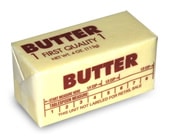
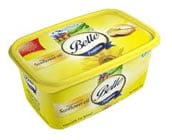 Not natural – made from refined vegetable oils (high in Omega 6 which cause inflammation in the body), which are neutralised, bleached, filtered and deodorised and turned into a spreadable forms by a chemical process called hydrogenation as they are not naturally solid at room temperature. The oil is heated to a high temperature, nickel oxide is used to force the change in molecular structure, strong pressure is applied and hydrogen is added into the structure to make it solid at room temperature. Not so simple…
Not natural – made from refined vegetable oils (high in Omega 6 which cause inflammation in the body), which are neutralised, bleached, filtered and deodorised and turned into a spreadable forms by a chemical process called hydrogenation as they are not naturally solid at room temperature. The oil is heated to a high temperature, nickel oxide is used to force the change in molecular structure, strong pressure is applied and hydrogen is added into the structure to make it solid at room temperature. Not so simple…

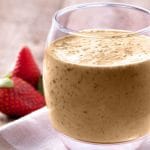
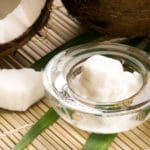
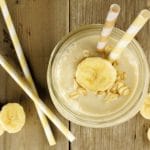
10 Replies to “Why You Should NEVER Choose Margarine instead of Butter”
Interesting article. I’ve always been a fan of butter myself, we never had margarine at home, thankfully. Something I’d love for you guys to clarify though… In my nutrition classes we had always learnt that butter from grass fed cows was the only butter high in omega 3s. Grain fed cow butter tends to be higher in omega 6. Same can be applied to the vitamin content of butter too. Thoughts?
Hi Emma, As far as I’m aware all butter contains Omega 3 but yes butter from grass-feed cows would have higher Omega 3 levels and vitamin levels. Always better to buy grass-feed when you can. Angela 🙂
You could probably make the case for why marg is better than butter if you just cherry pick the good from the bad.
If you have to avoid dairy, is butter okay? I love organic grass fed butter and the thought of not being able to have it anymore makes me sad!!
Hey Jo… Ghee is a great option. I know many people who are intolerant to dairy that have no problems with ghee… Hope that helps, Guy
Probably the main issue I have with finding the right advice is finding common acceptance on cholesterol. I have genetically high cholesterol. Very very high. The internet is a minefield of different contradicting advice on what to eat. Butter is one of those things. The implications for me choosing the wrong path could cost me decades of life expectancy.
Hey Kaine, I totally understand where you are coming from as it can be so confusing… You might find this helpful https://180nutrition.com.au/2013/09/29/high-cholesterol-is-not/ … Guy
Thanks Guy! Much appreciated. I have downloaded the book Cholesterol Clarity and will give that a read. The more information I can gather together, the better.
What are some butters that you recommend from Woolworths or Coles?
I usually buy Macro Organic Butter. Angela 🙂
Comments are closed.